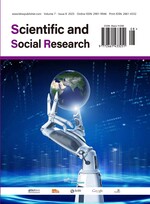Abstract
Maintaining fair competition is the core of guaranteeing the effective operation of the market economy. Using the Fair Competition Review System introduced in 2016 as a quasi-natural experiment, this study explores the impact of the system on corporate misconduct. The study finds that the Fair Competition Review System is negatively associated with corporate misconduct. This effect operates by increasing firms’ internal controls and mitigating the short-sightedness of the firms’ management. It is more pronounced at firms located in regions with poorer business environments and among firms with lower information transparency. Finally, the Fair Competition Review System effectively reduces business and bankruptcy risks. Overall, the study provides micro-level empirical evidence for the governance effects of the Fair Competition Review System and valuable references for corporate governance practices.
References
Lai A, Du Q, Wang Q, 2024, One Region’s Gain is Another’s Loss: The Impact of Market Segmentation on Renewable Energy Development in China. Energy Policy, 2024(192): 114215.
Guo TM, Li JG, Gao FY, et al., 2023, Examining the Impact of Market Segmentation on Carbon Emission Intensity in China. Sustain, 2023(15): 16672.
Li Z, Zhou J, Zhang Z, 2023, Market Segmentation and Haze Pollution in Yangtze River Delta Urban Agglomeration of China. Atmosphere, 14(10): 1539.
Zhang ZY, Luo XH, Hu HY, et al., 2023, Market Integration and Urban Air Quality: Evidence from the Yangtze River Economic Belt of China. Economic Analysis and Policy, 2023(80): 910–928.
Wei N, 2024, Green Finance, Market Integration, and Regional Economic Resilience. Finance Research Letters, 2024(67): 105777.
Zhang ZL, Wang ZY, Si YW, et al., 2023, Administrative Monopoly Regulation and Corporate Tax Avoidance-evidence from China. Finance Research Letters, 2023(58): 1544–6123.
Zhu ZH, Huang Y, Hu C, et al., 2024, The Green Effects of Competition: Administrative Monopoly Regulation and Green Innovation. Finance Research Letters, 2024(64): 105488.
Yang XQ, Zhang KX, Liao GM, et al., 2024, Administrative Monopoly and State-owned Enterprise Innovation: Evidence from the Fair Competition Review System in China. International Review of Financial Analysis, 2024(95): 103463.
Li X, Niu J, Yang D, et al., 2024, Can Administrative Monopoly Regulation Enhance Corporate ESG Performance? Evidence from the Fair Competition Review System. Applied Economics Letters, published online, 1–6.
Wang KD, Wu C, 2023, Directors and Officers Liability Insurance and Corporate Misconduct: Evidence from China. Applied Economics, 2023(55): 2349–2365.
Lu QS, Xiang C, Li BX, et al., 2023. Non-controlling Shareholders’ Governance Participation and Corporate Misconduct: Evidence from Voting in General Meetings. Pacific-Basin Finance Journal, 2023(81): 102118.
Li Z, Zheng PP, Xie HB, 2024, Judicial Digital Intellectualization and Corporate Online Misconduct. Finance Research Letters, 2024(62): 105117.
Tang XD, Gu Y, Weng RY, et al., 2021, Confucianism and Corporate Fraud. International Journal of Ethics and Systems, 2021(17): 1425–1445.
Cheng FY, Liao J, Liu XT, et al., 2023, Local Happiness and Corporate Financial Misconduct: Does Happiness Reduce Organizational Opportunistic Behavior? Journal of Accounting and Public Policy, 42(6): 107157.
Chen SH, Chen YL, Khalil J, 2023, Beyond the Glass Ceiling: Informal Gender-based Status Hierarchy and Corporate Misconduct. Journal of Business Research, 2023(169): 114281.
Abebe MA, Acharya K, 2022, Founder CEOs and Corporate Environmental Violations: Evidence from S&P 1500 Firms. Business Strategy and the Environment, 31(3): 1204–1219.
Raghunandan A, 2024, Government Subsidies and Corporate Misconduct. Journal of Accounting Research, 2024(62): 1449–1496.
Zhang Y, Song TH, Fang ZS, et al., 2023, Conniving or Controlling: How Does Banking Competition Impact Private? Finance Research Letters, 2023(58): 104561.
Arouri M, El Ghoul S, Gomes M, 2021, Greenwashing and Product Market Competition. Finance Research Letters, 2021(42): 101927.
Luo JH, Peng C, Zhang X, 2020, The Impact of CFO Gender on Corporate Fraud: Evidence from China. Pacific-Basin Finance Journal, 2020(63): 101404.
Kerr JN, 2019, Transparency, Information Shocks, and Tax Avoidance. Contemporary Accounting Research, 36(2): 1146–1183.
Lang M, Lins K, Maffett M, 2012, Transparency, Liquidity, and Valuation. Journal of Accounting Research, 2012(50): 729–774.
Ohlson JA, 1980, Financial Ratios and the Probabilistic Prediction of Bankruptcy. Journal of Accounting Research, 18(1): 109-131.
John, K, Litov, L, Yeung, B, 2008, Corporate Governance and Risk-Taking. The Journal of Finance, 63(4): 1679–1728.
